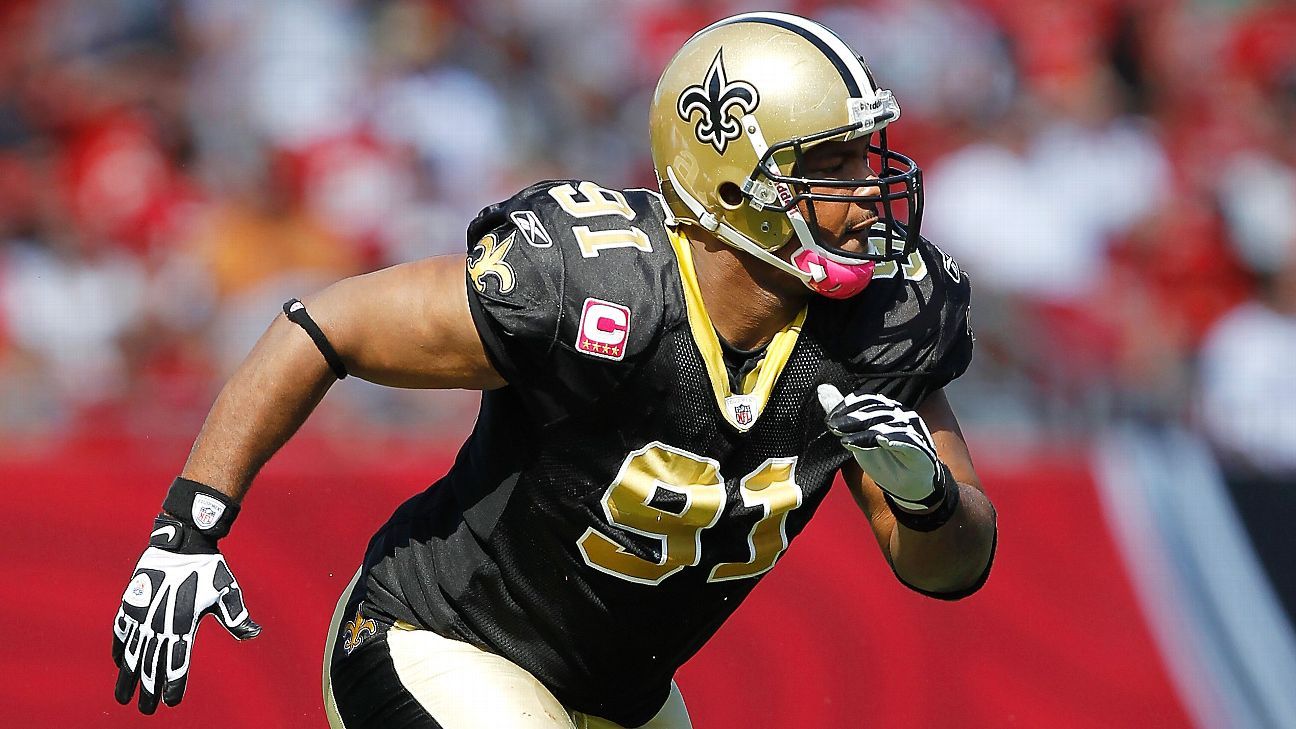The man who shot and killed former New Orleans Saints defensive end Will Smith following a traffic crash almost eight years ago was found guilty of manslaughter early Saturday morning.
Cardell Hayes could face up to 40 years in prison following the jury’s decision in a retrial of the 2016 case. Hayes was acquitted of attempted manslaughter for the shooting that injured Smith’s wife, Racquel, in the same altercation.
A defense lawyer had insisted that Hayes rightfully feared for his life when he shot Smith, while and the city’s top prosecutor insisted that Hayes fired needlessly.
“One gun was fired by one man,” an animated District Attorney Jason Williams said during closing arguments, holding in the air the evidence-tagged handgun that Hayes fired, hitting Will Smith eight times — seven in the back — and hitting Racquel Smith in the legs.
Hayes had been convicted in December 2016 of manslaughter in Smith’s death and attempted manslaughter for the gunshot wounding of Racquel Smith. But the jury vote was 10-2, and the conviction was tossed after the Supreme Court outlawed nonunanimous verdicts. Hayes was released on bond after having served more than four years of a 25-year sentence handed down by the same judge who will determine his sentence again.
His retrial was delayed for various reasons, including court closures during the COVID-19 pandemic.
Prosecutors rested their case against Hayes on Friday, and the defense chose not to call witnesses after that.
Assistant District Attorney Matt Derbes, during closing arguments, conceded that Smith was drunk at the time Hayes ran into the rear of his car before the shooting and that a loud argument ensued. He also acknowledged that a gun was in Smith’s car. But there was no testimony or evidence indicating he retrieved it.
Defense attorney John Fuller insisted prosecutors had not proved that Hayes didn’t act in self-defense. Fuller pointed to a recording of a 911 call made soon after the shooting in which Hayes can be heard in the background, saying Smith had stated he intended to get a gun from his car.
Hayes, 36, insisted at his 2016 trial that he shot Smith in self-defense during the April 2016 confrontation.
Evidence showed Will Smith was intoxicated at the time of the confrontation. But there was no witness or forensic evidence to back up Hayes’ claim that Smith had wielded or fired a weapon.
Smith, a 34-year-old father of three, was a defensive leader on the Saints team that lifted spirits in New Orleans after Hurricane Katrina devastated the city in 2005. He helped carry the team to a winning season in 2006 and a Super Bowl victory in 2010.
“Each time we stepped into this courthouse, we were forced to relive the worst moments of our lives,” Racquel Smith and her family said in a statement. “As hard as it was to sit and listen to autopsy reports and untruths about the night Will was killed, and I was shot, we came each day brave and strong because we were fighting for Will. I can look my children in the eyes and tell them that I gave everything in pursuit of justice on behalf of Will.”
Hayes, who owned a tow truck business, once played semipro football. He has one son.
The Associated Press contributed to this report.
